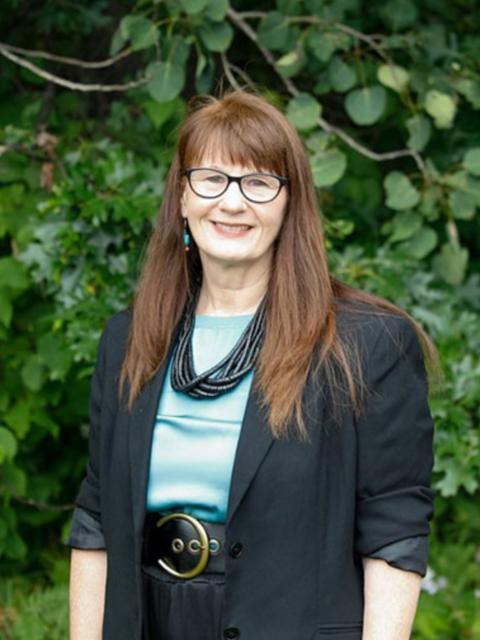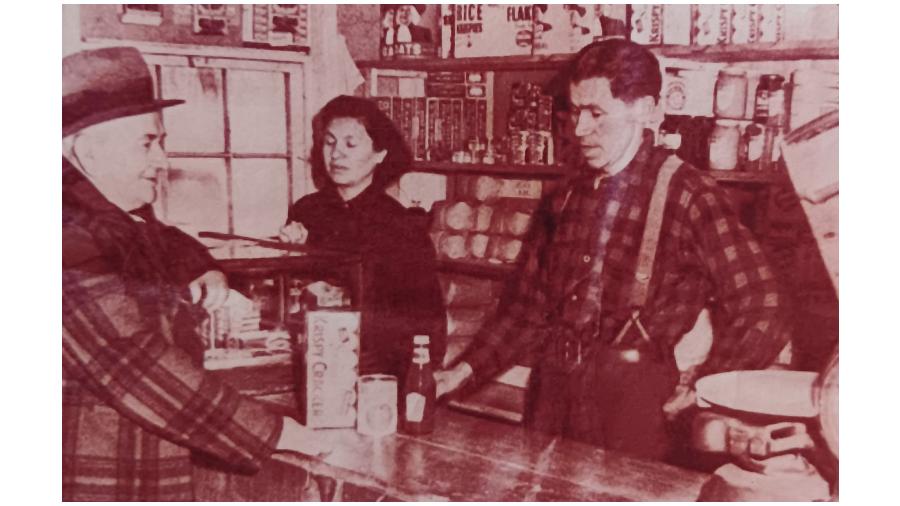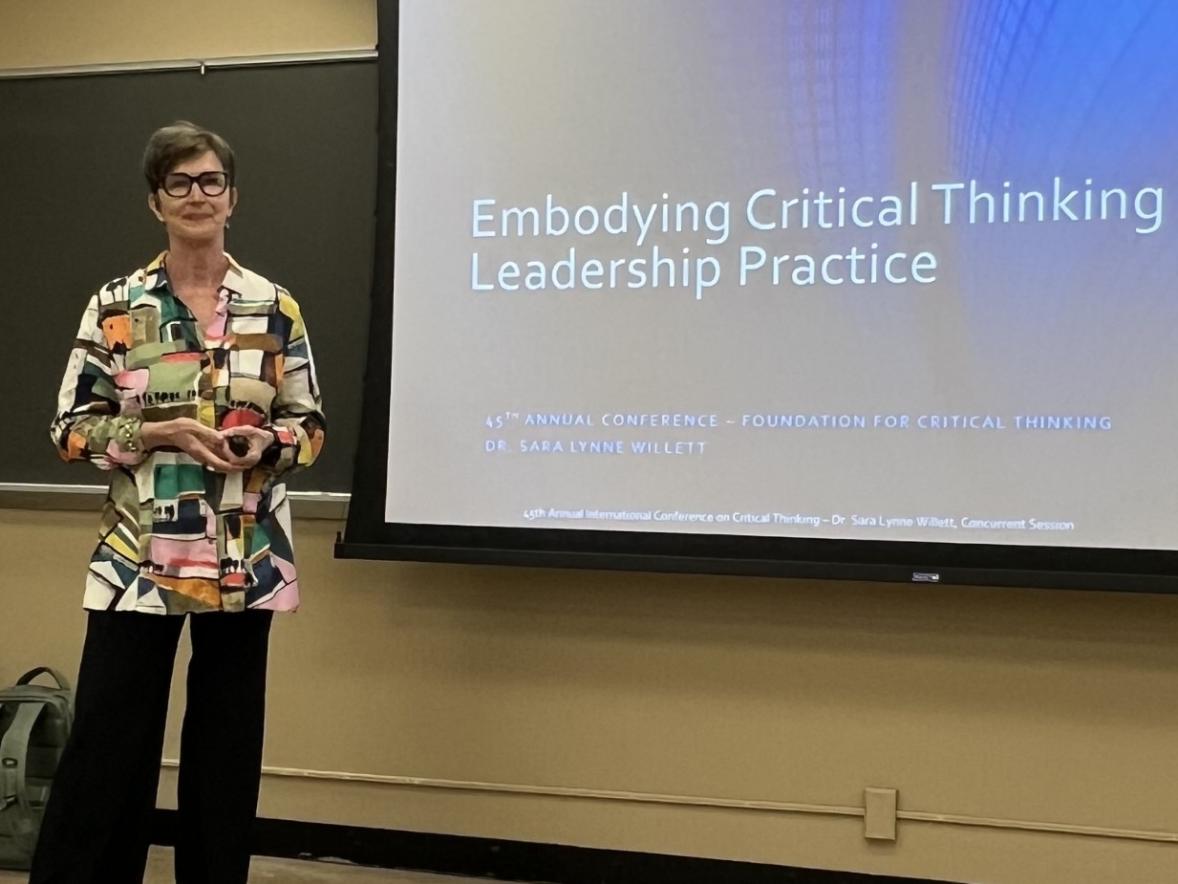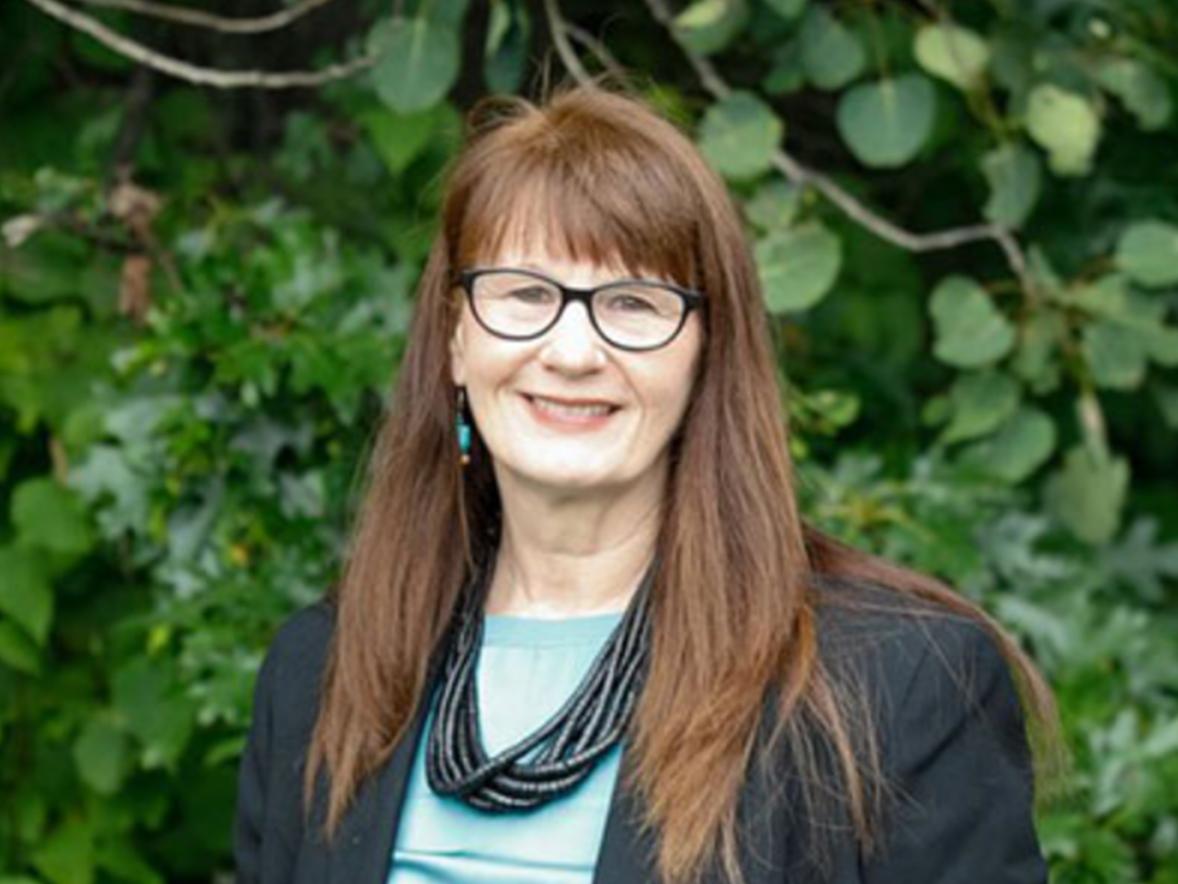With more than 30 years of field experience and two degrees from UW-Stout, Zhawaanukwe Jodee Smith is leading as Chief Financial Officer and Dean of Career and Technology Education at Lac Courte Oreilles Ojibwe University, located on the Lac Courte Oreilles reservation and serving three additional tribal communities in north-central Wisconsin.
The university’s mission is to provide Anishinaabe communities with post-secondary and continuing education while advancing the language, culture and history of the Ojibwe. As dean, Smith is dedicated to providing students with hands-on education to prepare them for careers in technical fields, and to build partnerships with the community and businesses to meet workforce needs.

“I have been involved in many alternative training efforts to help individuals become industry-ready, from marketing a business to running daily operations. It is in my combined professional experience and UW-Stout education that readied me for this role,” she said.
Smith earned her dual degrees in B.S. in management and M.S. in operations and supply management from UW-Stout. She began as Dean of CTE at Lac Courte Oreilles Ojibwe University in June 2024 and as interim CFO last February, overseeing financial planning, budgeting, grant management, and more to ensure the university’s financial health and overall success.
LCOOU, which has a student population of up to 400 per year, has developed a facility plan for the next three decades. Recently, an 82-bed dormitory was completed. Future projects include additional student and family housing, a new CTE space, and an expansion of the nursing and EMT program spaces.
“I’m very thankful for the opportunity to serve as interim CFO. More importantly, I’m able to use my skills to move the university forward,” Smith said.
Supporting Indigenous values and education
Smith’s goals as dean are to support students’ Indigenous values, traditions and lifestyles while achieving their education goals and to address challenges faced by Native Americans, including mental health issues and historical trauma brought on by the Native American boarding schools.
“The history of Native American education is marked by trauma. The consequences of this traumatic experience persist today, affecting mental health, self-esteem and cultural identity,” Smith said.
From the 1860s to the 1960s, native children were forcibly removed from their families and tribal communities to attend boarding schools. These schools aimed at assimilating native students into Euro-American culture, often through harsh methods like physical punishment for speaking their native languages or practicing their spiritual beliefs, Smith said.
She noted other challenges Native Americans face in education that she hopes to address:
- High dropout rates and low college enrollment: Native American students face disproportionately high dropout rates compared to other student groups. Factors contributing to this include inadequate resources, cultural disconnect and a lack of support systems. Similarly, college enrollment rates among Native American students remain lower than desired. Financial barriers, limited access to higher education institutions and cultural differences play a role in this disparity.
- Cultural relevance: Native American students often lack access to culturally relevant educational materials. The curriculum may not adequately reflect their history, traditions or contemporary issues.
- Representation matters: Having Native American faculty members and administrators who understand their unique experiences can positively impact students’ sense of belonging and success.
- Stereotypes, prejudice and discrimination: Native American students may face stereotypes, racial biases and discrimination. These negative attitudes may manifest within the campus environment or through insensitive curriculum content. Overcoming these challenges requires fostering cultural awareness and promoting inclusivity within educational institutions.
“It’s essential to recognize and address these issues to create a more supportive and equitable educational environment for Native American students,” Smith said.
Inspiration through leadership
Smith began her undergraduate studies in engineering technology, but she needed to drop out of the program to help a family member who had stage IV kidney disease. She donated a kidney during that time, which caused a longer delay in returning to her education.
“After my family member was doing better, I decided to go back to school,” she said. “When I called UW-Stout and discussed my situation, I was told that I could switch my degree to the management program and work under the dual program to achieve my master’s.
“I felt heard and seen. I began my master’s program while I was completing my undergrad studies. It was a huge relief and a seamless transition into my master’s program.”
Smith was encouraged to make the call to return to school by her son, Aagimewikamig Dustin Morrow. “Dustin was instrumental in getting me to take the steps to contact and finish my degrees. Without his unwavering support, I don’t know if I would have,” she said.
She completed her capstone on the supply chain infrastructure among tribal nations. Her applied research consisted of exploring the supply chain needs among tribal nations and developing a supply chain management plan. She worked with Program Director Eli Aba, M.S. in operations and supply management, to expand her research and build supply chain operation capacities among tribal nations.
Smith is inspired by many people – her teachers, professors and friends – who have faced life challenges.
However, it is her grandparents, Henry and Agnes Smith, and her father, Don, Lac Courte Oreilles tribal members, who inspire her to continue her life's work.

Henry and Agnes were entrepreneurs and owned a store in New Post, a community on the reservation. Henry was one of the first Tribal Chairmen for the Lac Courte Oreilles. Don served for more than 35 years as LCO health director.
“They taught me that we are made up of our mind, body, spirit and heart and must care for and grow each part to feel complete and in balance in my life and with our environment – Mother Earth and all the living beings,” Smith said.
Agnes took college courses at the age of 70. “When I asked her why, she said, ‘We should never stop learning, no matter how old we get, even if we learned everything that we were presented with to learn, that would be less than a grain of salt compared to what is out there to be learned,’” Smith said.
Prior to LCOOU, Smith was an instructor for Emergency Medical Response, First Aid, and CPR at Wisconsin Indianhead Technical College-Rice Lake, and worked in the field providing training to business personnel to meet their requirements.
She was a certified business plan writer for the Wisconsin Department of Commerce and was the founder and co-owner of Spirit Winds Consulting LLC, a business development consulting firm that held a Minority Business Enterprise Certification through the state MBE program. With Spirit Winds, she worked with state and federal agencies to help start-up MBEs in plan development, research and development, marketing, finance opportunities, and more.
UW-Stout’s M.S. operations and supply management program is offered both on campus and in a flexible online format. It is housed within the operations and management department, which also offers master’s programs in construction management; risk control and safety management; sustainable management; and training and talent development.






